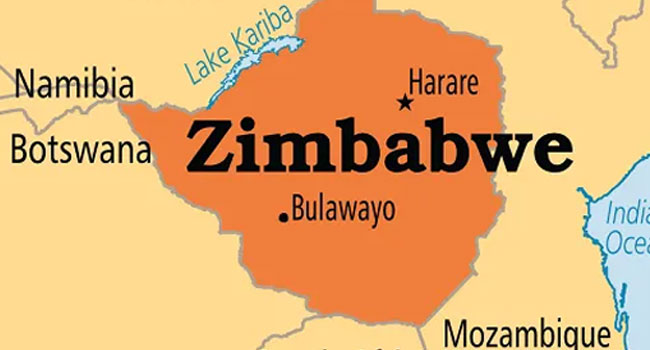Zimbabwean care worker Marian dreamt of her teenage daughter joining her for a new life in Britain, but new migration rules have left them stranded on different continents.
The 41-year-old boarded a plane for Britain in July after securing a job as a care worker for the elderly in the northern city of Leeds.
After an emotional goodbye, she said she took comfort in believing her 13-year-old daughter would join.
But the government’s latest attempt to clamp down on migration upended their plan.
Since March, overseas health and social care staff earning under £29,000 ($37,000) a year can no longer bring family dependents to Britain.
“I was devastated,” said Marian, who did not want her full name published.
Her job, helping the elderly wash, eat and get dressed, pays less than the required threshold.
But, she insists, it is enough to support her family.
“The amount of money that I earn here is enough to enable me to take care of my daughter,” she told AFP via Whatsapp.
Zimbabweans have been among those most affected by the new rules.
Britain has long used foreign workers, especially from English-speaking countries, to fill critical staff shortages in the healthcare system, as its ageing population increases demand.
Brexit, which saw an outflow of European workers, and the Covid pandemic have exacerbated the need.
Thousands of Zimbabwean doctors, nurses and teachers have moved to Britain to escape economic turmoil at home.
High unemployment and rampant inflation plague the impoverished former British colony. Its public health system has virtually collapsed under years of mismanagement, amid shortages of funds, staff, medicine and equipment.
– ‘Split up’ –
More than 20,000 Zimbabweans were granted UK health and care worker visas in the year ending June 2023, accounting for about 17 percent of the total, according to government figures.
Another 18,000 were allowed in as dependents, the third largest group behind Indians and Nigerians.
However, many others have now found the door shut.
Brighton Mutebuka, a Zimbabwean lawyer based in Leeds, said his firm was handling more than a dozen cases of families “split up” by the new rules.
Some like Shuvai Moyo, a senior nurse for the state-run National Health Service (NHS), said they considered moving away.
“I had never really seen Australia or the United States as an alternative destination but… if I can’t bring my child here, I would consider going there,” she said.
An 11th-hour promotion put her over the minimum salary threshold and she now hopes to be reunited this year with her six-year-old daughter who suffers from autism.
– Battleground issue –
Britain’s Conservative government has unveiled a raft of measures aimed at cracking down on record levels of migration.
The topic is a key battleground issue in the general election due to be called by January 2025, with the main opposition Labour party favourite to win.
Interior minister James Cleverly said the new measures would result in 300,000 fewer people coming to Britain in the coming years.
But critics warn they will damage the NHS, which faces staff shortages.
Social care providers have also increasingly hired foreign staff to deal with growing demand.
Elderly care is a key concern. In just England and Wales, the number of people aged 65 years and over increased from 9.2 million in 2011 to over 11 million in 2021, according to official data.
“Without the possibility of family reunification, many will not migrate for work,” said Zimbabwean lawyer Musa Kika.
He pointed to the irony of the rules barring workers providing care to British families from bringing their own families to the country.
– ‘Reckless’ –
Gavin Edwards, of Britain’s UNISON public workers’ union, described the measures as “reckless”.
“Those that are already here will almost certainly leave for countries where they’ll be made to feel more welcome,” he warned.
For single mum Marian, the future is uncertain.
Since arriving in Britain, she had been busy looking for schools and accommodation for her daughter — who is staying with an aunt — to join her.
“Going back to Zimbabwe is not an option,” she said.
Back home she was struggling to earn enough to pay for her daughter’s education.
“I will do whatever it takes to get her to the UK,” she said.
AFP

